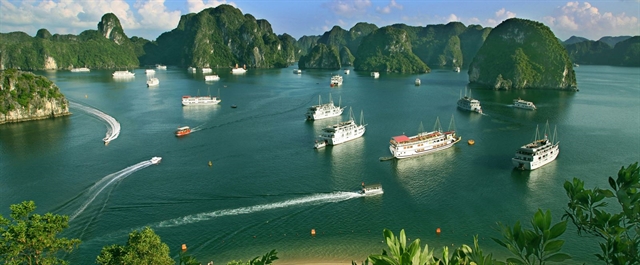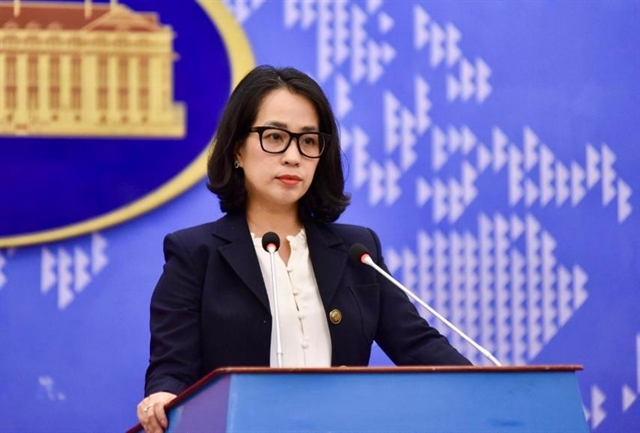 Life & Style
Life & Style


|
| Boats on Hạ Long Bay, a tourist magnet in the northern province of Quảng Ninh. Photo halongbay.com.vn |
HÀ NỘI — Proactively popularising Việt Nam's cultural values to the world and bringing into play the soft power of culture is helping promote the country’s status in the international arena, and is one of the targets determined in the cultural development strategy until 2030.
In recent years, Việt Nam has been striving to popularise images of its land and people to help uphold national cultural identity.
The year 2021 was the seventh time Việt Nam took part in a World Expo. The Việt Nam Pavilion at World Expo 2020 Dubai was located in the “Opportunity” district and themed “Distilling the Past, Shaping the Future”.
Deputy Minister of Culture, Sports and Tourism Tạ Quang Đông said the pavilion reflected the Vietnamese Government’s strong commitment and enormous efforts to promote the country’s image, bringing into play the strength of cultural values and the Vietnamese people’s creativity, and make the country a part of the “brilliant colours” of the world.
Struggling against the pandemic’s impacts, the Việt Nam National Administration of Tourism has proactively boosted tourism promotion on digital platforms with a focus on the key markets of international tourists so as to attract them back to the country.
Recently, a video clip titled Live fully in Việt Nam was debuted in conjunction with the first foreign visitors arriving under a pilot “vaccine passport” scheme, marking a new stride in efforts to recover the tourism industry.
Assoc. Prof. and Dr Nguyễn Hữu Thục, a lecturer from the Hà Nội-based National University of Arts Education, said the cultural identity of a country holds an important role in the development of the nation. It is not immutable but can be developed to match the reality, including the intensive globalisation and international integration.
Many experts shared the view that cultural diplomacy has helped introduce Việt Nam's land, culture, history, and people to the world.
In recent years, Việt Nam has organised cultural days, weeks, and festivals in many countries which in turn have also held their cultural events in the Southeast Asian nation, with a view to enhancing mutual understanding. In addition, several individuals have also been appointed as cultural ambassadors to spread cultural values of each country.
The strategy for developing Việt Nam's cultural industries until 2020 with a vision to 2030, which targeted the development of cultural industries in tandem with the dissemination of the country’s images, has helped protect and bring into play the national cultural identity during the international integration and cooperation process. This is also in line with the role of culture as a driver for economic development stated in the documents of the 13th National Party Congress. VNS




